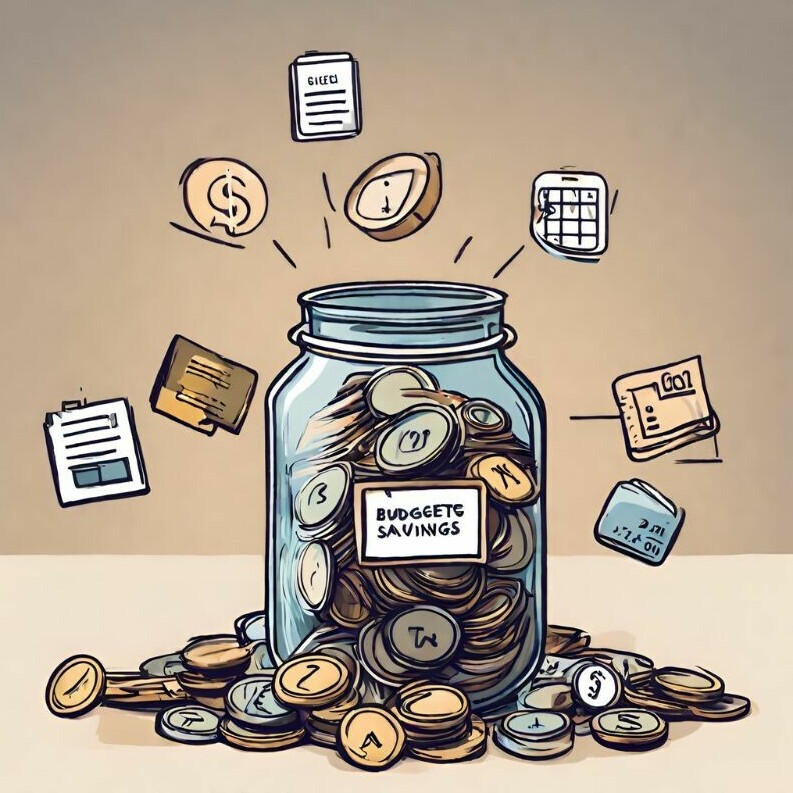|
Getting your Trinity Audio player ready...
|
Hello, my loves! Trecia here, bringing you all the tea on how to supplement your retirement income. Today we’re talking about building a game plan for financial freedom in your golden years. So grab a cup of your favorite brew and let’s dive right in!Retirement is often viewed as a time to kick back, relax, and reap the rewards of years of hard work. But let’s be real, honey – the cost of living isn’t taking a break just because you are. Understanding how to supplement your retirement income can mean the difference between struggling and sashaying through your sunset years
.Exploring Part-Time Employment Opportunities Tailored for Retirees
First things first, consider part-time employment. Now, don’t roll your eyes at me, darlings! I’m not talking about hustling like you’re still in your 30s. Think fun and fulfilling roles that bring in some extra coins. Tutoring, substitute teaching, or freelance editing can be great options. You’ve got a lifetime of wisdom to share, why not get paid for it?
Table of Contents
ToggleUnderstanding the Current Financial Landscape for Retirees
 Now, my darlings, the landscape of retirement has changed more dramatically than a reality TV show plotline. Kiplinger’s tells us that the retirement trends today are shaping the retirement realities of tomorrow. The traditional three pillars of retirement income – employer pensions, personal savings, and social security – are undergoing a transformation.
Now, my darlings, the landscape of retirement has changed more dramatically than a reality TV show plotline. Kiplinger’s tells us that the retirement trends today are shaping the retirement realities of tomorrow. The traditional three pillars of retirement income – employer pensions, personal savings, and social security – are undergoing a transformation.
Employer-provided pensions have become as elusive as a good man on a Friday night. And Social Security income? Honey, it’s carrying more weight than ever before. But with more than half of retirees living on less than 50% of their pre-retirement income, according to a survey by Goldman Sachs, it’s like trying to enjoy champagne on a beer budget.And let’s not forget about the rising number of baby boomers who have no retirement savings at all.
The Hill reports that this figure has jumped from 30 percent to 37 percent. Talk about a wake-up call, right?But, my loves, the future isn’t all doom and gloom. T. Rowe Price suggests three themes shaping the U.S. Retirement Landscape: retirement income, personalization, and diversification. So, while the landscape is changing, there’s still plenty of opportunities to navigate these changes and secure your financial future.
So, tell me, how are you preparing for this new retirement reality? What steps are you taking to navigate this financial landscape? Share your thoughts in the comments below!
Leveraging Skills and Experience into Consulting or Freelancing
First off, know your worth. You’ve been in the game for years, honey, and that’s worth its weight in gold. Don’t undersell yourself just because you’re new to the freelancing world. Sites like Glassdoor can give you an idea of what freelancers in your field are charging.Next, polish that LinkedIn profile until it shines brighter than a diamond. This is where potential clients will get their first impression of you, so make it count. Highlight your achievements, skills, and experience in a way that’s easy to understand.
Now, let’s talk networking. Forbes suggests joining industry-specific groups on LinkedIn and attending virtual events to connect with potential clients. Remember, your next gig could come from the most unexpected places.And don’t forget about marketing yourself. Create a website, start a blog, or even launch a podcast. Show off your expertise and let potential clients see what you bring to the table.
Websites like WordPress or Wix can help you create a professional-looking site in no time.Finally, consider signing up with freelancing platforms like Upwork or Fiverr. These sites can help you find clients and manage your projects all in one place.Remember, my loves, the transition to consulting or freelancing may not be easy, but it can be incredibly rewarding. You have the skills and experience – now it’s time to put them to work for you.
So tell me, are you considering taking the leap into freelancing or consulting? How are you leveraging your skills and experience? Share your thoughts in the comments below!
Investing Wisely: Low-Risk Options for a Steady Income Stream
First off, let’s talk about high-yield savings accounts. These are like your regular savings account but with one major difference – they offer higher interest rates. This means your money works harder for you. Plus, they’re insured by the FDIC, so your investment is safe.Next up, we have money market funds.
These are mutual funds that invest in short-term, high-quality investments issued by U.S. corporations, and federal, state, and local governments. They are a safe bet when it comes to low-risk investments.Another great option is short-term certificates of deposit (CDs). These offer a fixed interest rate and are also insured by the FDIC. The catch?
You have to agree not to access your funds for a set period of time. But if you can hold off, CDs can be a great way to earn some extra income.Bonds, specifically U.S. Treasury bills, notes, and bonds, are another low-risk investment option. They provide regular interest payments and return the face value of the bond at maturity.Dividend stocks, utility stocks, and preferred stocks can provide a steady income stream while also offering the potential for capital appreciation. They can be a great addition to any retirement portfolio.
Fixed annuities are insurance contracts that pay a guaranteed income for a specified period or for life, making them a popular choice for retirees. However, they can be complex and may have high fees, so be sure to do your research.
Lastly, don’t overlook the potential of real estate crowdfunding and direct investment in rental properties. These can provide a steady income stream and the potential for property appreciation.Remember, my loves, investing involves risks, including the possible loss of principal, and it’s important to consider your risk tolerance and investment objectives before diving in.
Always consult with a financial advisor to make sure you’re making the best choices for your situation.So tell me, are you considering any of these low-risk investment options? Do you have other strategies for creating a steady income stream? Share your thoughts in the comments below!
Turning Hobbies and Passions into Profitable Ventures
 First off, identify what you love to do. Whether it’s painting, baking, gardening, or writing, there’s potential to monetize almost any hobby. Remember, passion is infectious; when you love what you do, others will be drawn to it too.
First off, identify what you love to do. Whether it’s painting, baking, gardening, or writing, there’s potential to monetize almost any hobby. Remember, passion is infectious; when you love what you do, others will be drawn to it too.
Next, do your market research. Is there a demand for your product or service? Who are your competitors? What can you offer that’s unique?
Sites like Google Trends can help you understand what people are searching for online.Once you’ve got your idea, it’s time to create a business plan. This should outline your goals, target audience, pricing strategy, and marketing plan.
The U.S. Small Business Administration has great resources to help with this.Now, let’s talk about branding. A strong brand can set you apart from the competition. Think about your logo, color scheme, and overall aesthetic. Your brand should reflect your personality and appeal to your target audience.When you’re ready to launch, consider starting small. You might open an Etsy shop, sell at local farmers markets, or offer your services to friends and family.
As you grow, you can consider creating a website or expanding to other platforms.Social media is also a powerful tool for promoting your business. Platforms like Instagram, Pinterest, and Facebook are great for showcasing your products or services and connecting with potential customers.
Don’t forget about the power of hashtags to reach a wider audience.Finally, remember to keep track of your finances. Tools like QuickBooks or Mint can help you manage your income, expenses, and taxes.Remember, my loves, turning a hobby into a business can take time and effort, but the rewards can be well worth it. You’re doing what you love and making money at the same time – what could be better?
So tell me, are you considering turning your hobby into a business? What steps are you taking to make it happen? Share your thoughts in the comments below!
The Role of Social Security and Pensions in Supplementing Income

Social Security is a federal program that provides benefits to retired workers, disabled individuals, and their survivors. Your benefits are based on your lifetime earnings. It’s designed to replace approximately 40% of an average wage earner’s income after retiring. However, the amount you receive can vary depending on when you choose to start receiving benefits.
Pensions, on the other hand, are employer-sponsored retirement plans. If you’re lucky enough to have one, your employer contributes money to the plan on your behalf. Upon retirement, you receive regular payments from this fund. The amount you receive typically depends on your salary, years of service, and the specific terms of your pension plan.
Both Social Security and pensions play a crucial role in supplementing retirement income. They can provide a steady cash flow and help cover basic living expenses. However, they’re typically not enough to maintain your pre-retirement lifestyle.This is where personal savings, investments, and other income sources come into play. Consider things like IRAs, 401(k)s, annuities, and even part-time work or a small business. These can supplement your Social Security and pension income, helping you live comfortably and enjoy your retirement years.Remember, my loves, planning for retirement is a long-term game.
The sooner you start, the better off you’ll be. Consult with a financial planner to ensure you’re making the most of your income sources and setting yourself up for a secure future.So tell me, are you considering how Social Security and pensions will factor into your retirement plans?
What other income sources are you exploring? Share your thoughts in the comments below!
Navigating the Gig Economy: Flexible Work Options for Seniors
The gig economy is a booming market that provides opportunities for workers to take on short-term contracts or freelance work instead of, or in addition to, traditional full-time jobs. And for seniors, it’s an especially attractive option.
One of the biggest draws of the gig economy for seniors is flexibility. You can take on as much or as little work as you desire, allowing you to balance work and leisure time.
Whether you’re looking for a side hustle to supplement your income or a part-time job that allows you to stay active and engaged, the gig economy has you covered.Moreover, the gig economy often provides the chance to work remotely. This location independence can be particularly appealing to seniors who want to travel or who prefer not to commute.But the benefits don’t stop there. Many seniors find that gig work offers a sense of purpose and social engagement.
Whether you’re sharing your expertise as a consultant or connecting with people as a driver for a rideshare service, gig work can provide meaningful interactions and the chance to make a difference.Despite these benefits, it’s also important to consider the potential challenges.
Gig work often doesn’t provide the same stability and benefits as traditional employment. It’s crucial to have a plan for things like retirement savings and health insurance.Also, navigating the gig economy may require learning new skills, such as digital literacy. There are resources available to help seniors gain these skills and succeed in the gig economy.
Remember, my loves, the gig economy is just one avenue for work in retirement. It’s essential to consider your lifestyle, financial needs, and personal preferences when exploring this option.So tell me, are you considering joining the gig economy? What kind of gig work appeals to you? Share your thoughts in the comments below!
Real Estate: Downsizing, Renting, and REITs Investment Potential
Downsizing is a popular option for many seniors. It involves moving to a smaller home, often after children have moved out or in preparation for retirement. The benefits can be significant: reduced costs, less maintenance, and potentially a simpler lifestyle.
However, downsizing isn’t right for everyone. It’s important to consider factors like location, accessibility, and emotional attachment to your current home.
If you decide to downsize, planning ahead and organizing your belongings can make the transition smoother.
Renting is another option that can offer flexibility and financial benefits. For seniors, renting can eliminate the stress of home maintenance and provide more freedom to travel. Moreover, it can free up cash tied up in home equity. However, it’s essential to consider factors like rent stability, the terms of your lease, and how well the rental property suits your needs.
REITs are a type of investment that owns, operates, or finances income-generating real estate. They offer a way for individual investors to earn a share of the income produced through commercial real estate ownership – without actually having to go out and buy commercial real estate.Investing in REITs can provide a steady stream of income through dividends, as well as potential appreciation in the value of the shares. They can be a great addition to a diversified investment portfolio.
However, as with any investment, there are risks involved, including market volatility and interest rate sensitivity.Remember, my loves, making real estate decisions can be complex and should reflect your personal circumstances and goals. It’s always wise to consult with a financial advisor or real estate professional to help guide your decisions.So tell me, are you considering downsizing, renting, or investing in REITs? What factors are influencing your decision? Share your thoughts in the comments below!
Maximizing Savings Through Budgeting and Expense Management

Budgeting is the cornerstone of any successful financial plan. It involves tracking your income and expenses to understand where your money is going and identify areas where you can save. Start by listing all your sources of income and all your expenses. Then, categorize your expenses into ‘needs’ (like housing and groceries) and ‘wants’ (like dining out and entertainment).Seeing everything laid out can help you spot trends and identify areas where you can cut back. Remember, even small changes can add up over time!
Expense management goes hand-in-hand with budgeting. This involves being mindful of your spending habits and making intentional decisions about where to allocate your resources
Automate Savings: Set up automatic transfers to your savings account each month. This ensures that saving is a priority, not an afterthought.So tell me, my loves, how are you managing your budget and expenses? Do you have any tips to share? Let me know in the comments below!
Staying Financially Secure: Avoiding Scams Targeting Retirees

Scammers often target seniors because of their perceived vulnerability and the likelihood that they have a nest egg. These scams can take various forms, but some of the most common ones are government impersonation scams, robocall scams, and sweepstakes scams.
Government Impersonation Scams: In these scams, fraudsters pretend to be government officials to trick you into providing personal information or money. They might claim that you owe a debt that must be paid immediately or face severe consequences like arrest or termination of benefits.
Robocall Scams: These scams involve automated phone calls that offer free prizes, low-cost vitamins, and health care products, or inexpensive vacations. If you receive such a call, hang up immediately. Remember, if it sounds too good to be true, it probably is.
Sweepstakes Scams: In these scams, fraudsters tell you that you’ve won a lottery or sweepstakes and need to pay a fee to collect your prize. Legitimate sweepstakes will never ask you to pay a fee to collect your winnings.
To protect yourself, always be skeptical of unsolicited contacts and too-good-to-be-true offers. Never give out personal information like your Social Security number or bank account details over the phone unless you initiated the contact and are sure of who you’re dealing with. And remember, it’s okay to say no and hang up.If you believe you’ve been targeted by a scam, report it to your local law enforcement agency and your state’s Attorney General’s office.Remember, my loves, staying informed and vigilant is your best defense against these scams.
So tell me, have you or someone you know been targeted by such scams? How did you handle it? Share your experiences and tips in the comments below!
So if you really want to dive in and make some real money with your passion then you might want to consider my #1 recommendation Wealthy AffiliateWealthy Affiliate is a platform that offers training and tools for affiliate marketing. Now you might be wondering, why should a senior consider joining Wealthy Affiliate? Let’s dive in.
Flexibility: As a senior, one of the most significant advantages of affiliate marketing through Wealthy Affiliate is the flexibility it offers. You can work at your own pace, whenever and wherever you want. This can fit comfortably into your daily routine without disrupting other activities.
Community Support: Wealthy Affiliate boasts a supportive community and caring founders. The platform provides interactive support and a lively forum where you can share ideas and learn from others’ experiences.
Comprehensive Training: Wealthy Affiliate offers comprehensive training materials. Regardless of your tech-savviness, their training programs guide you through the basics and beyond. You gain hands-on experience and learn to apply theory practically.
Affordability: Affiliate marketing is a fairly straightforward online business model that doesn’t require much money to get started. This makes it accessible for seniors looking to earn some extra income without significant upfront investment.However, like any platform, Wealthy Affiliate has its drawbacks. Some critiques point to the sales pitch used to sign up members. Therefore, it’s essential to do your research and understand what you’re getting into before making a commitment.Remember, my loves, exploring new opportunities is a great way to stay engaged and financially active during retirement. But always make sure any venture aligns with your interests, skills, and financial goals.So tell me, have you considered joining Wealthy Affiliate or a similar program? Share your thoughts in the comments below!
-
- Cut Unnecessary Subscriptions: Review your monthly subscriptions and cancel any that you no longer use or need.
- Shop Smarter: Use coupons, shop sales, and consider buying items used instead of new to save money.
- Reduce Energy Costs: Unplug electronics when they’re not in use, use energy-efficient appliances, and consider switching to a cheaper energy provider if possible.
- Reduce Energy Costs: Unplug electronics when they’re not in use, use energy-efficient appliances, and consider switching to a cheaper energy provider if possible .
- Shop Smarter: Use coupons, shop sales, and consider buying items used instead of new to save money.
- Reduce Energy Costs: Unplug electronics when they’re not in use, use energy-efficient appliances, and consider switching to a cheaper energy provider if possible.


